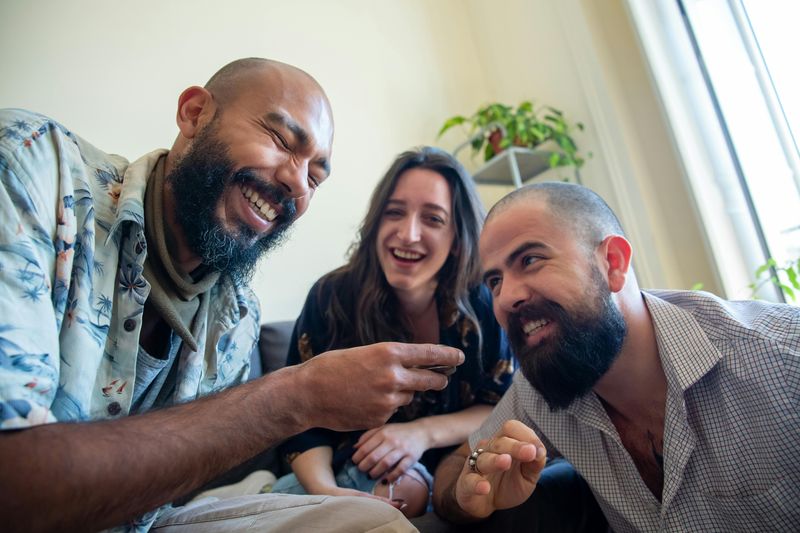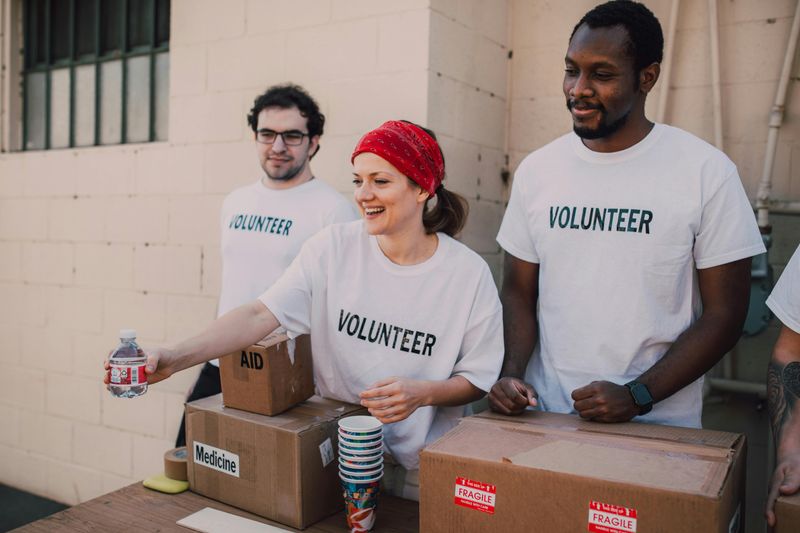When the last child leaves home, many parents face an identity crisis that can feel like losing a part of themselves. After years of school runs, packed lunches, and teenage dramas, the sudden quiet can be both liberating and terrifying. I’ve been there myself, and discovered that this transition offers a brilliant opportunity to rediscover who you are beyond your parenting role.
1. Reconnect with Pre-Parent Passions

Remember that guitar gathering dust in the attic? Or those half-finished paintings you abandoned when nappies took priority? Now’s your golden opportunity to dust off old hobbies that once defined you.
I rediscovered my love for photography after 20 years, and goodness me, cameras had changed! The learning curve was steep but exhilarating. Your muscle memory might surprise you; those interests weren’t just pastimes; they were part of your core identity.
2. Forge New Friendships Beyond Parent Groups

For years, your social circle probably revolved around your children’s activities. ‘Sarah’s mum’ or ‘Jack’s dad’ became your primary identifiers at school gates and football matches.
I joined a local book club where nobody knew my children, and it felt oddly refreshing to be known simply as me. Seek communities based on your interests; whether walking groups, pottery classes, or volunteer organisations. These connections help rebuild your social identity separate from parenthood.
3. Transform Their Room (Eventually)

Your daughter’s poster-plastered sanctuary or son’s sports-equipment dumping ground holds powerful memories. Don’t rush to convert these spaces the moment the car pulls away for university.
After my son left, I waited six months before gradually transforming his room into my reading nook. The timing felt right; not erasing him but embracing a new chapter. Consider creating a multipurpose space that honours their past while serving your present needs.
4. Schedule Regular Adventures (Big and Small)

The school calendar no longer dictates your life! That midweek city break or spontaneous coastal walk? Absolutely doable now.
My husband and I celebrated our empty nest by booking trips we’d postponed for years. But adventures needn’t be grand or expensive. I’ve discovered the joy of weekday matinees and impromptu picnics; simple pleasures previously impossible with children’s schedules. Creating a regular ‘adventure day’ builds anticipation and reminds you that freedom is a gift, not a loss.
5. Rekindle Romance with Your Partner

Let’s be honest; children can hijack relationships. Between football practice and homework help, meaningful conversations with partners often dwindle to logistics and schedules.
After our youngest left, my husband and I established ‘proper date nights’ with one rule: no talking about the kids. Awkward at first (what did we discuss before children?), but gradually, we rediscovered each other. Relationships need reinvention after parenting; whether through shared activities, renewed intimacy, or simply eating dinner whenever you bloody well please!
6. Embrace Professional Reinvention

Many parents (particularly mothers) scale back careers during child-rearing years. The empty nest phase offers a brilliant opportunity for professional reinvention; whether advancing in your current field or pivoting entirely.
At 52, I returned to university for a qualification I’d always wanted. My classmates were mostly twentysomethings, but my life experience proved surprisingly valuable. Consider courses, mentorships, or volunteering that might lead to new career paths. Your accumulated wisdom is a tremendous asset in workplaces.
7. Nurture Your Physical Self

Parenting often pushes personal health to the bottom of the priority list. Those skipped gym sessions and grabbed-on-the-go meals take their toll over the years.
The empty nest phase arrived just as my knees started complaining about years of neglect! I found a brilliant pilates instructor who helped me reconnect with my body. Establishing new health routines; whether swimming, walking, or finally learning proper nutrition; isn’t vanity; it’s reclaiming ownership of your physical self after years of putting others first.
8. Create New Family Traditions

Christmas, birthdays, and holidays need reinvention when children no longer live at home. Rather than clinging to traditions that no longer fit, create new ones that honour your evolving family structure.
We replaced our chaotic Christmas morning gift exchange with a lovely Christmas Eve dinner where we share the year’s highlights. Adult children appreciate traditions that acknowledge their maturity. Be flexible about where celebrations happen; sometimes at theirs, sometimes at yours. The family identity evolves, but needn’t diminish.
9. Find Purpose Through Giving Back

The nurturing energy previously directed toward children can find meaningful outlets in community service. Volunteering offers both purpose and perspective during this transition.
After decades of helping with school fundraisers, I redirected my organisational skills to a local food bank. The work connects me with people of all ages and backgrounds, expanding my worldview beyond my family bubble. Many empty nesters discover that mentoring young people provides a fulfilling way to share accumulated wisdom without the 24/7 responsibilities of parenting.
10. Maintain Meaningful Parent-Child Connections

Your parenting role hasn’t ended; it’s transformed. Building adult relationships with children requires letting go of daily oversight while maintaining meaningful connection.
My relationship with my daughter blossomed once I stopped sending those ‘just checking in’ texts every day. I learned to wait for her to reach out, making our conversations more genuine. Technology offers brilliant ways to stay connected; we have a family chat where we share funny moments, but respect each other’s independence. Quality now trumps quantity in your interactions.
11. Practice Self-Compassion Through Transition

Feeling both relief and grief when children leave is completely normal. Some days you’ll celebrate the freedom; others you’ll feel lost without your parenting purpose. Both reactions are valid.
I kept a journal during my first year as an empty nester, documenting the emotional rollercoaster. On particularly wobbly days, I’d remind myself: ‘You raised them to leave; their independence is your success.’ Give yourself permission to process contradictory emotions without judgment. This transition deserves as much self-care as any major life change.